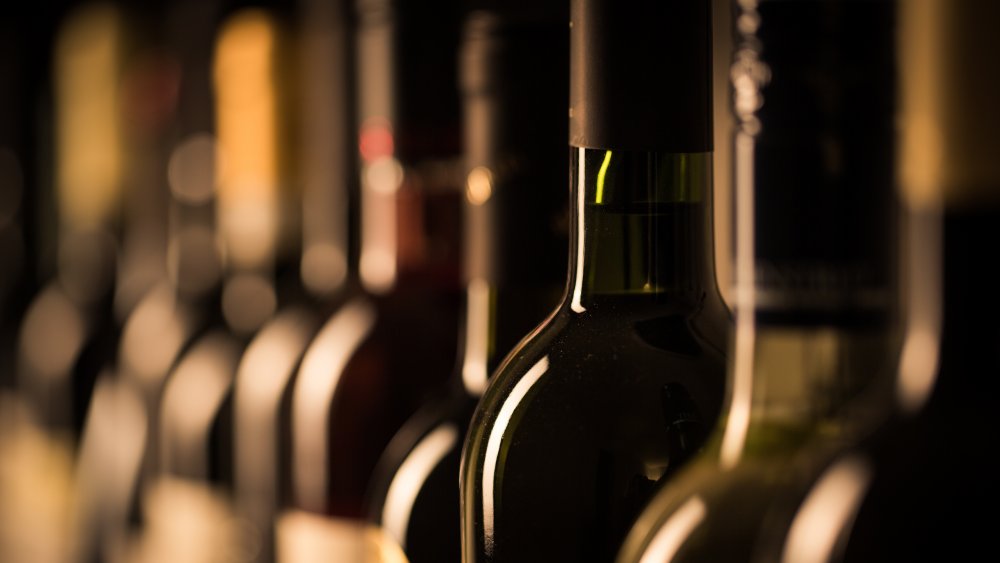The Real Difference Between Expensive And Cheap Wine
What's the real difference between expensive and cheap wine? It may surprise you that the answer is as simple as, "It's all in your head." Forbes contributor Katie Kelly Bell notes that wine preference is subjective as she confronted the question of whether or not there is a real difference between a bottle of wine that costs $15 and one that costs $150.
First, we have to ask: What makes a bottle of wine expensive? Dr. Vinny of Wine Spectator says there are two things that can make a bottle of wine expensive. The first is how much it costs to make the bottle of wine in the first place. There is a wide variety of costs when it comes to raw materials, for starters, and this cost is then passed on to the imbiber. The second reason expensive wine is expensive is because of its "perceived value" by the consumer, which is, again, subjective.
Still not a believer?
The difference between expensive and cheap wine is all in your head
In 2017, The University of Bonn conducted an experiment to test what is called the "marketing placebo effect" which is a phenomenon where identical products are perceived differently solely based on differences in cost. The experiment took 30 people and asked them to rate the wines they tested. The only thing that varied in the experiment was the cost of the wine that each participant was shown prior to sampling it (via EurekAlert).
"As expected, the subjects stated that the wine with the higher price tasted better than an apparently cheaper one," reports Professor Hilke Plassmann from the INSEAD Business School, with campuses in Fontainebleau (France), Singapore and Abu Dhabi. Moreover, the statement concluded, "Identical wine leads to a better taste experience when a greater quality expectation is associated with the wine due to its price."
Cheap wine can be just as good as expensive wine
That's not the end of the story — there has been more than one study to reach a similar conclusion. Wired also details a study psychologist Richard Wiseman conducted about wine. Wiseman purchased wine ranging in price from $5 to $50 and then did his own double-blind taste test — neither he nor the taster knew which wine was the expensive wine — and asked which wine was the most expensive. Over 600 people participated and could only pick the most expensive wine 53 percent of the time, which is basically as good as random guessing.
This brings us back to Bell's question — Is there a real difference between a bottle of wine that costs $15 and one that costs $150? Bell agrees with the plethora of experiments that have been conducted to demonstrate how cost can influence our tastes, but she believes the one thing these experiments leave out is the experience you bring to the wine when you drink it.
The bottom line? A hefty price tag doesn't always equal a better bottle of vino, but perhaps the best bottles of wine are the ones we share with family and friends.


